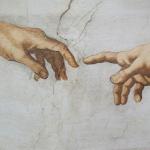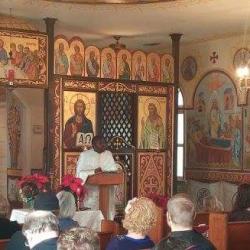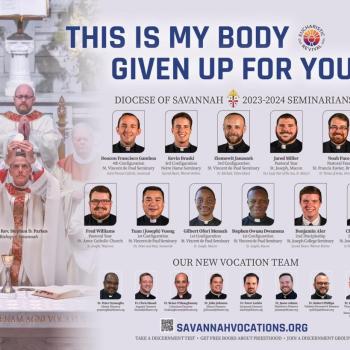I wrote this article after attending a conference where Chris Baglow was the speaker. Dr. Baglow is a theology professor and initiative director at The McGrath Institute for Church Life at the University of Notre Dame. He spoke on the theme of science, faith and truth. This topic is a big interest of mine – I wrote my master’s dissertation on the topic.
One of the psalms may be the best resource to start to consider the place of human beings in the universe. “What is man that you are mindful of him? Yet you have made him little less than a god, crowned him with glory and honor. You have given him rule over the works of your hands, and put all things at his feet (Psalm 8: 5-9). The recent images captured by NASA’s James Webb Space Telescope give us a glimpse into the vastness of the universe, and remind us of our littleness. Many consider that man in the universe is but a speck of dust, the current handiwork of biological evolution. Though there is an element of truth in this thinking, God has revealed to us at the very same time that human beings are the pinnacle of creation.
The 14th century German mystic Meister Eckhart wrote that in the “core of the Trinity the Father laughs and gives birth to the Son. The Son laughs back at the Father and gives birth to the Spirit. The whole Trinity laughs and gives birth to us.” Eckhart’s intriguing suggestion implies that the creation of our first parents is the result of the love and joy shared by the persons of the Trinity in the way one shares a laugh with a loved one. The place of man in the universe is in the heart of the God who creates and sustains him.
In 1981, Pope John Paul II addressed a Plenary Session of the Pontifical Academy of Sciences, during which he stressed that “Holy Scripture does not wish to teach how heaven and made but how one goes to heaven.” He taught that the Book of Genesis discusses the origins of the universe not as a scientific exposition, but rather, as a description of the relationship between God and human beings. Despite our insignificant stature when compared to the grandeur of the universe, the Book of Genesis teaches that God declared everything He created “good”, and when He created our first parents, He declared them “very good.” The last day of creation does not come to an end as the other days in the narrative, indicating God’s fashioning of humankind has not ended.
The place of humans in the universe is decisively revealed at the Baptism of Jesus when the voice of God the Father was heard saying, “this is my beloved Son; with whom I am well pleased.” God’s declaration of the goodness of humanity is heard. We may be an insignificant speck of dust, yet God has chosen to fashion us throughout history, and in Jesus His Son has revealed that we are beloved children.
It is in Jesus Christ that God’s relationship with humans comes to perfection and where we find our place in the cosmos. All that we can learn from the natural sciences about human beings comes to fulfillment in Jesus Christ who opens everything we are to eternal life. Some suggest the final day of creation concludes on the cross, when a darkness descends over the earth. At that point, God’s creation is finished – and we come to know perfectly our identity in Jesus the Son of God.
Poor Job cries up to God in pain, “what are human beings, that you make much of them, or pay them any heed? (Job 7:17).” Despite our littleness, God does make much of us, and raises our humanity to be sharers of His divinity. Jesus Christ, true God and true man, teaches us our true place in the universe.

















